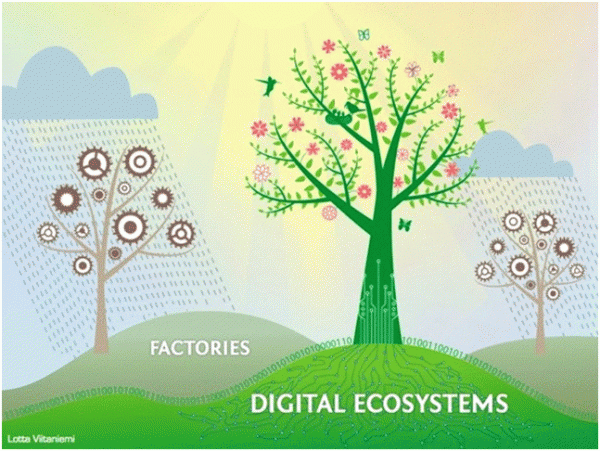

Open Source as a sustainable model for collaborative Library Innovation/

This session does not deliver a pre-packed model for digital library Innovation: It´s more of an interactive session regarding best practice on how to create, nurture and run digital library ecosystems from an organizational end economical point of view. Or more short and direct - how to make things happen and evolve.
The sessions target group is everyone from library directors, digital managers, project managers, digital innovators, library rebels, visionaries and so on who want to leverage the real potential and effects of open digital collaboration and sharing.
The digital society is evolving fast and constantly changing the prerequisites for libraries being contemporary. This forces the libraries all over the world to be among the most creative, innovative and collaborative organizations in the public sector. We regularly work together in formal as well as informal groups to reach new ways to serve our users. We embrace the concepts of OPEN source/data/access/innovation/etc. and share our findings, knowledge and results at national as well as international conferences and workshops.
But, one fundamental problem shared between the vast majorities of digital library projects are sustainability. Sustainability in the aspect of the results (applications, code, documentation, platforms, etc.) being maintained and well supported for the whole library sector to use, modify and further develop. We lack digital ecosystems with open platforms that help new projects to build upon the predecessors to effectively deliver even more value to the users.
Most digital library projects share several of the following problems regarding sustainability:
• results only used by one or a few number of libraries
• built from scratch, each one with its own architecture, technology and data formats
• seldom built upon other libraries earlier investments and results
• the same problems solved with new projects again and again
• results are closed applications and data rather than open platforms to support continuous improvement
• results lacks continuous support and maintenance in order to support a wider adoption and use
• complex and costly integrations with local systems, done again and again
• monopoly in the library business – we need more innovative companies and products to work with
• public sector governance – focus on control rather than results, reduces the innovative power
• Public Procurement Regulations (national, EU, etc.) - not created to support collaboration and sharing in open environments
• good and innovative people geographically spread and in different organizations
• even the largest libraries are too small to fund, innovate and maintain platforms on their own
The workshop will be formed around examples and core questions from the participants and moderators. Please add your questions and ideas as open comments below to influence the workshop.
Some questions to start with:
• How can we build upon other libraries results?
• How do we support and maintain common platforms outside the scope of an individual library or project?
• How do we coordinate and maintain common platforms without losing innovative power?
• How do we fund common investments not directly tied to a specific project or library?
• How do we create better competition with larger involvement from companies and individuals outside the library industry
• How much should be common solutions? National vs. local solutions? International?
• How do we balance the rebel innovators with the need for public sector structure and control?
• How can we use technology like Cloud Computing, linked data, Open API/WS, etc. to harness innovative power, reduce cost and open up for outside innovation?
• Etc.
The workshop will be moderated by Mats Hernvall - Strategic Marked Developer at DBC, mhe@dbc.dk . Mats Hernvall dk.linkedin.com/in/Hernvall is a business developer in the digital age. He is driven and inspired by people, technology and processes with a focus on change management and effects. Mats are one of the founders of TING.concept Community www.ting.dk in Denmark, the initiator of www.biblioteket.se in Sweden and a regularly speaker at library conferences.
- Login to post comments







